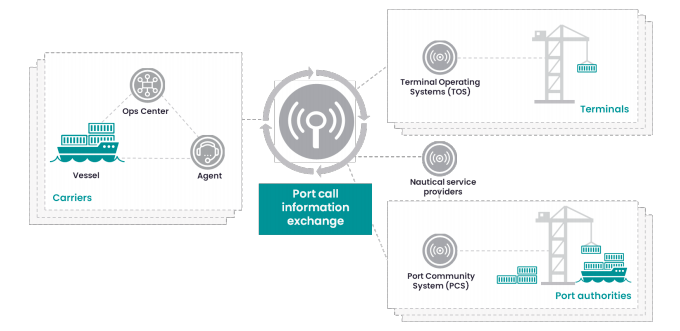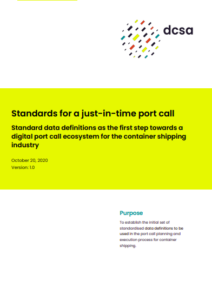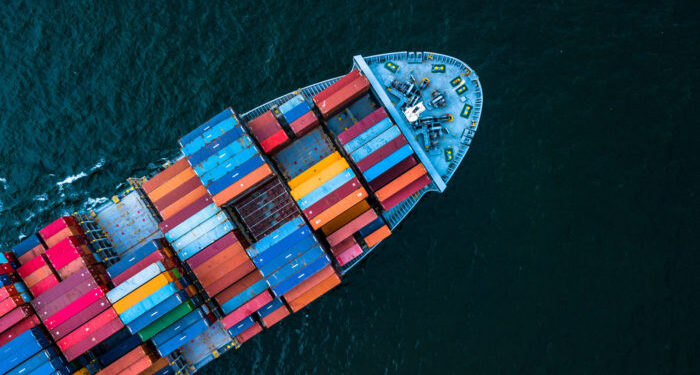As part of its Just-in-Time (JIT) Port Call programme, the Digital Container Shipping Association (DCSA), a non-profit group aiming to further digitalize container shipping technology standards, in conjunction with its nine member carriers, published standard data definitions for the port call process.
By moving container shipping towards a JIT port call process, DCSA port call standards seek to enable container ships to optimise their steaming speed, thereby lowering fuel consumption and reducing CO2 emissions.
They standards also align with IMO and ITPCO Just In Time (JIT) Arrival Guide standards, in order to provide a global industry framework.
As explained, the definitions will allow carriers, ports and terminals to exchange event data in a uniform way, enabling digital planning and operational optimization.
Just-in-time port calls enabled by DCSA digital standards will play an important role in helping ensure that these attributes are a core part of our infrastructure. There are a lot of moving parts and stakeholders that need to work together to enable a JIT port call. With commitments from the world’s top carriers, DCSA’s digital standards are key to enabling this collaboration,
…said Erwin Verstaelen, CDIO for Port of Antwerp.
Widespread adoption is the first step towards achieving a digital, global, transparent, just-in-time port call ecosystem. Subsequent releases of DCSA’s JIT Port Call programme will include API definitions for automating the exchange of event data.
Port call optimisation will enable terminal operators to provide many benefits to their shipping customers. With just-in-time port calls, arrival times and berth space can be optimally managed. This means capacity, equipment and staffing can be more accurately estimated and planned,
…said Frank Kho, CEO of TIC4.0 (Terminal Industry Committee 4.0).

Enabling a vessel to optimise its speed during the voyage to arrive just in time at the Pilot Boarding Place, when berth availability is ensured, will significantly reduce the amount of fuel consumed. Achieving this will require digital collaboration between carriers, ports and terminals. DCSA digital standards play an important role in establishing the harmonious ecosystem that will allow this level of collaboration, and today’s release is the first step towards the creation of that ecosystem,
…added Thomas Bagge, CEO DCSA.
Explore more herebelow:































































